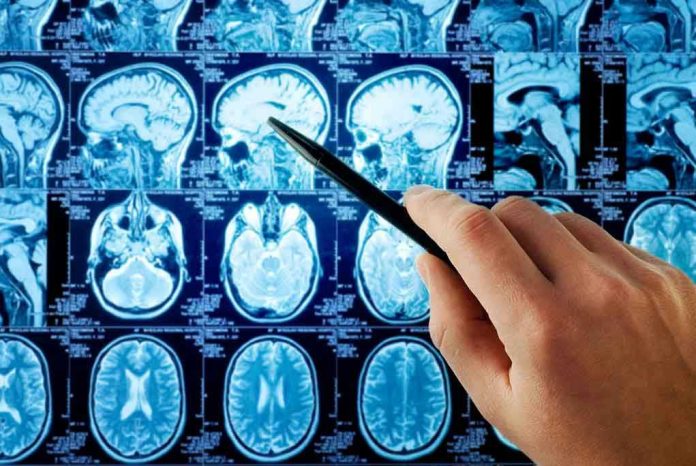
Researchers in Switzerland and the U.S. have successfully used human neural stem cell transplants to reverse stroke damage in mice, restoring motor functions and regenerating brain tissue. The breakthrough study was led by a team from the University of Zurich (UZH), ETH Zurich, and the University of Southern California’s (USC) Keck School of Medicine. The findings were published in the journal Nature Communications in September 2025
Story Highlights
- Stem cell transplants regenerated brain cells and restored motor functions in stroke-damaged mice
- Treatment worked beyond the critical acute phase, offering new hope for long-term stroke recovery
- Research represents a paradigm shift from emergency interventions to regenerative healing
- Human clinical trials are planned following successful longitudinal studies in animal models
Breakthrough Reverses Traditional Stroke Treatment Approach
Researchers at the Swiss 3R Competence Center and Neuroscience Center Zurich have demonstrated that stem cell transplants can reverse stroke damage in mice by promoting brain cell regeneration and restoring motor functions. Dr. Ruslan Rust emphasized the translational significance of these findings, noting they offer potential benefits for stroke patients well beyond the acute phase of injury. This represents a fundamental shift from traditional emergency-focused treatments to regenerative therapies that could help millions of stroke survivors.
Stem Cells Repair Brain Tissue and Blood Vessels
The transplanted stem cells demonstrated remarkable capabilities by differentiating into various brain cell types needed for recovery. These cells not only regenerated damaged neural tissue but also facilitated the repair of blood vessels critical for brain function. The research showed that stem cells could restore motor functions that had been lost due to stroke damage, providing concrete evidence of functional recovery rather than just cellular repair.
Long-Term Studies Pave Way for Human Trials
Scientists are conducting longitudinal studies to assess the long-term effects and integration of transplanted cells before advancing to human clinical trials. The research builds on decades of stem cell biology advancements, particularly the development of induced pluripotent stem cells that can be transformed into neural progenitor cells for transplantation. This careful progression addresses previous challenges in stem cell research, including graft survival and long-term safety concerns that have historically limited clinical applications.
Scientists reverse stroke damage with stem cells https://t.co/GqiP3g8JKr
— Lee J. Keller (@leejkeller) September 18, 2025
The breakthrough occurs as stroke incidence continues rising, creating urgent demand for more effective treatments beyond current interventions. Healthcare systems could see significant changes in treatment protocols and resource allocation as regenerative therapies move from experimental to clinical practice. The collaborative effort between multiple Swiss institutions demonstrates the interdisciplinary approach necessary for translating complex regenerative medicine research into practical treatments that could transform stroke recovery outcomes.
Sources:
Stem Cell Transplant Promotes Brain Cell Regeneration and Functional Recovery After Stroke in Mice
Stem Cell Transplant for Brain Growth
Stem Cell Transplant for Stroke Leads to Brain Cell Growth and Functional Recovery in Mice
Nature Scientific Article on Stem Cell Research



